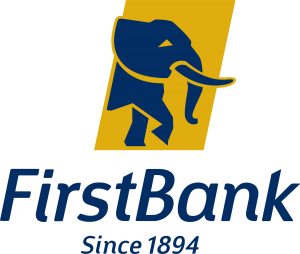Bank
Wema Bank to Train and Empower 800,000 Nigerian Businesses

…Signs MOU with Small and Medium Enterprises Development Agency of Nigeria (SMEDAN)
Reinforcing its reputation as an institution committed to empowering SMEs, Wema Bank, Nigeria’s foremost innovative bank and pioneer of Africa’s first fully digital bank, ALAT, has undertaken an initiative to empower 800,000 Nigerian Businesses; following its MOU Signing with Small and Medium Enterprise Development Agency of Nigeria (SMEDAN) on February 25th, 2025 in Lagos, Nigeria.
SMEDAN is a national agency established in 2003 with the goal of promoting the development of the Micro, Small and Medium Enterprises (MSME) sector of the Nigerian Economy. The partnership with Wema Bank is focused on training MSMEs on soft skills, technical skills, and business skills, empowering them to build profitable businesses, gain more visibility and scale sustainably. To execute this grand initiative, Wema Bank will provide the training and resources for the 800,000 businesses who will be curated by SMEDAN. This initiative will take course over the next 12 to 18 months.
Commenting on the partnership, Wema Bank’s MD/CEO, Moruf Oseni, reiterated the Bank’s lifelong commitment to empowering Nigerians to thrive. According to him, “At Wema Bank, we don’t pay lip service to SME matters.
From inception in 1945, Wema Bank was built with a purpose to provide financing for the indigenous people of Nigeria. It wasn’t because banks didn’t exist during those years, it was because we identified the gaps in access to finance for our people.
This is why Wema Bank came to life; to provide tailored financial services and empower Nigerians to thrive on both individual and business levels”.
“Over the past 8 decades, Wema Bank has been driving this lifelong mission of empowering Nigerians with access to finance, constantly reinventing to develop more efficient ways of delivering value to the people. One cardinal thing that we haven’t deviated from is that we are fully committed to empowering entrepreneurs and small businesses in Nigeria.
The petty traders we provided for in the 1900s are the entrepreneurs and MSMEs that we continue to empower in the 2000s, and we will never relent in fulfilling this promise. So, MSME empowerment for us is not just a buzzword.
It is what we have always done, what we are doing through this partnership with SMEDAN and what we will continue to do beyond 80 years”.
Commending Wema Bank’s evident commitment and key role in empowering business and stimulating growth in the MSME Sector, Charles Odili, the Director General of SMEDAN expressed confidence in the success of this partnership with Wema Bank towards building a sustainably successful future for Nigerian MSMEs.
Closing out, he added, “I want to again, thank Wema Bank. This is a prime example of how collaboration and determination to create impact can make a positive difference. I thank you for their constant support to MSMEs and for not paying lip service to MSME Empowerment in Nigeria”.
Wema Bank has earned an admirable reputation as Nigeria’s SME Bank, going above and beyond in empowering businesses with access to finance, visibility, market access, tailored trainings, mentorship and various other forms of support.
Through this partnership with SMEDAN, Wema Bank is set to advance Nigeria’s MSME industry, building formidable Nigerian businesses and reinforcing Wema Bank’s position as the Bank that is committed to empowering MSMEs.
Bank
Alpha Morgan to Host 19th Economic Review Webinar

Alpha Morgan to Host 19th Economic Review Webinar
In an economy shaped by constant shifts, the edge often belongs to those with the right information.
On Wednesday, February 25, 2026, Alpha Morgan Bank will host the 19th edition of its Economic Review Webinar, a high-level thought leadership session designed to equip businesses, investors, and individuals with timely financial and economic insight.
The session, which will hold live on Zoom at 10:00am WAT and will feature economist Bismarck Rewane, who will examine the key signals influencing Nigeria’s economic direction in 2026, including policy trends, market movements, and global developments shaping the local landscape.
With a consistent track record of delivering clarity in uncertain times, the Alpha Morgan Economic Review continues to provide practical context for decision-making in a dynamic environment.
Registration for the 19th Alpha Morgan Economic Review is free and can be completed via https://bit.ly/registeramerseries19
It is a bi-monthly platform that is open to the public and is held virtually.
Visit www.alphamorganbank to know more.
Bank
Separating Fact from Confusion: What Nigerians Need to Know About the 7.5% VAT on Banking Service Fees

In recent weeks, digital-banking customers and social media, especially on Twitter have raised concerns about deductions labelled as “VAT” on transfers and other charges.
Some dangerously false narratives, which when you take a critical look, you’ll clearly see that they have been orchestrated and sponsored by malicious elements, have given the impression that the 7.5% Value Added Tax (VAT) is a new or arbitrary charge introduced by fintechs, or that it applies to the amounts customers send. These claims are misleading and deserve careful clarification which is the purpose of this piece.
First, it’s important to understand how VAT works in Nigeria’s financial sector today. VAT on fees and charges for financial services has long been part of Nigeria’s tax system. The then Federal Inland Revenue Service (FIRS) had issued information circulars on March 31, 2021 where it stated that VAT on Financial Services (Circular No. 2021/04) that most fees, commissions, and charges by financial institutions (banks, insurance companies, brokers) are subject to 7.5% VAT.
This justifies a recent advertorial the Nigeria Revenue Service (NRS) which stated unequivocally that VAT was not newly introduced on banking service charges by recent tax reforms, and that it did not impose a new tax obligation on customers in that regard.
However what was left unsaid in that publication was that on the 12th of December, the tax agency had written to all financial institutions and payment gateways based on past meetings with operators that following from the new Tax Act, they were reminded of their mandatory obligations to collect, deduct and remit VAT at the prescribed rate.
The Agency then gave an 18- day grace period to all players to configure and align their systems while directing full compliance with the directive with effect from January 19, 2026. And so, some fintechs sent messages to their customers in the spirit of clarity and transparency.
It must be said that what has changed is that in a bid to widen the tax net, microfinance banks and fintechs who were not obligated to deduct and remit said VAT before now, have now become compelled to do so. The enforcement and standardised collection of VAT across banks and fintech platforms including mobile transfers, USSD transaction fees, and card issuance fees with compliance deadlines issued by tax authorities. So why anyone would vilify any financial institution obeying the laws of the land beats my imagination.
For those who have raised questions around transparency and wrongly suggesting that fintechs are suddenly imposing new, unexplained costs on users – as it has been explained above, this is a matter of regulatory compliance, not a lack of transparency or customer exploitation. These VAT deductions are not new fees created by the companies themselves, and providers are not arbitrarily raising their prices.
In closing, two things that everyone must bear in mind as we move forward in this new tax climate – all stakeholders including fintech platforms and regulators must communicate better and clearly. Nigerians must refrain from peddling unsubstantiated claims and malicious narratives, it has no benefits for anyone and erodes trust in systems.
Bank
FirstBank Introduces Exclusive 500-Seater Bleacher at Carnival Calabar & Festival 2025

FirstBank Introduces Exclusive 500-Seater Bleacher at Carnival Calabar & Festival 2025
Lagos, 26 December 2025 – FirstBank, West Africa’s premier financial institution and financial inclusion services provider, has officially announced its sponsorship of the Carnival Calabar & Festival 2025, unveiling a landmark addition set to redefine the carnival experience — the first-ever private premium seating area at the event.
The highlight of FirstBank’s participation is the construction of a 500-seater premium bleacher, designed to provide comfort, safety, and an elevated viewing experience for carnival enthusiasts.
Speaking on the sponsorship, the Acting Group Head Marketing and Corporate Communications, FirstBank, Olayinka Ijabiyi, noted that the carnival aligns with the Bank’s First@Arts initiative, a platform dedicated to supporting the creative arts value chain across Nigeria. He said, “We recognise the transformative power of the arts, including carnivals, in inspiring people and strengthening national unity. For more than 131 years, we have supported platforms that promote self-expression, social reflection and cultural exchange. Our investment in the Carnival Calabar & Festival demonstrates our commitment to preserving the nation’s rich cultural heritage through First@Arts.”
“As part of our sponsorship this year, we are introducing the first-ever private 500-seater premium bleacher to further elevate the carnival experience. This exclusive seating is designed to provide exceptional comfort and an unforgettable viewing experience for attendees,” Ijabiyi added.
The Chairman of the Cross River State Carnival Calabar Commission, Gabe Onah, also commented on FirstBank’s sponsorship. “FirstBank’s involvement is a strong demonstration of private-sector support for culture and tourism. This partnership not only enhances the overall quality of the carnival but also strengthens its global appeal,” he said.
The Carnival Calabar & Festival 2025 is officially marketed by Okhma Global Limited, the appointed Official Marketer responsible for brand partnerships, promotional engagements, and ticket sales. Okhma Global Limited has partnered with the Cross River State government in delivering Carnival Calabar & Festival for over ten years, playing a key role in strengthening the carnival’s commercial growth and global visibility.
-

 celebrity radar - gossips6 months ago
celebrity radar - gossips6 months agoWhy Babangida’s Hilltop Home Became Nigeria’s Political “Mecca”
-

 society6 months ago
society6 months agoPower is a Loan, Not a Possession: The Sacred Duty of Planting People
-

 society5 months ago
society5 months agoReligion: Africa’s Oldest Weapon of Enslavement and the Forgotten Truth
-

 news6 months ago
news6 months agoTHE APPOINTMENT OF WASIU AYINDE BY THE FEDERAL GOVERNMENT AS AN AMBASSADOR SOUNDS EMBARRASSING


